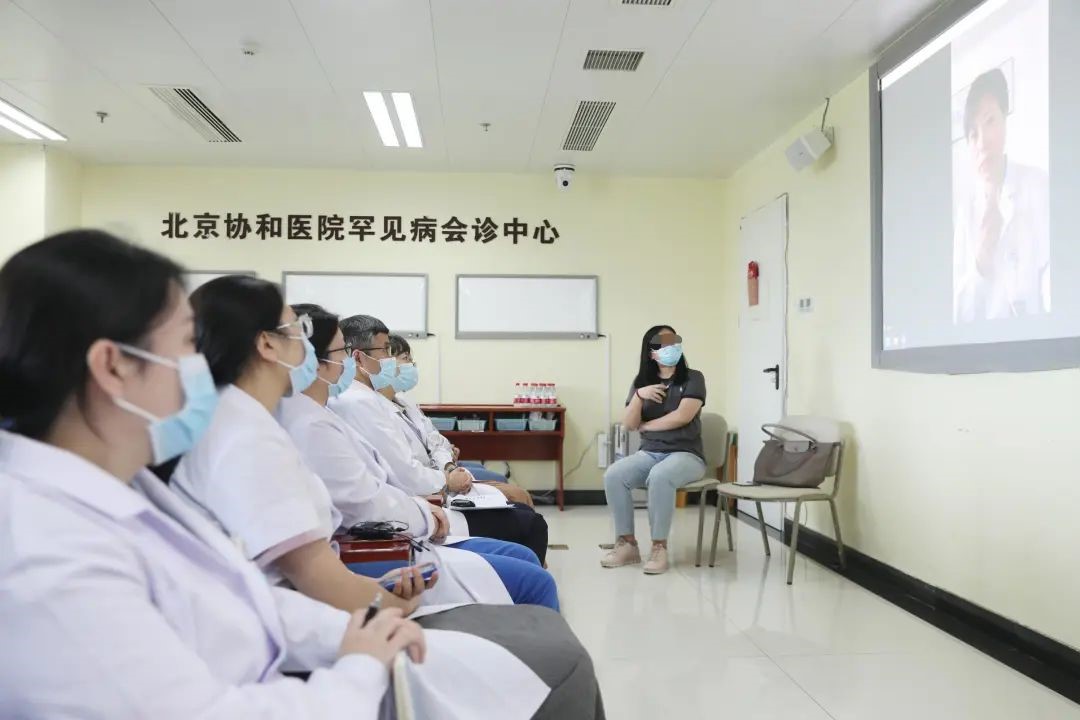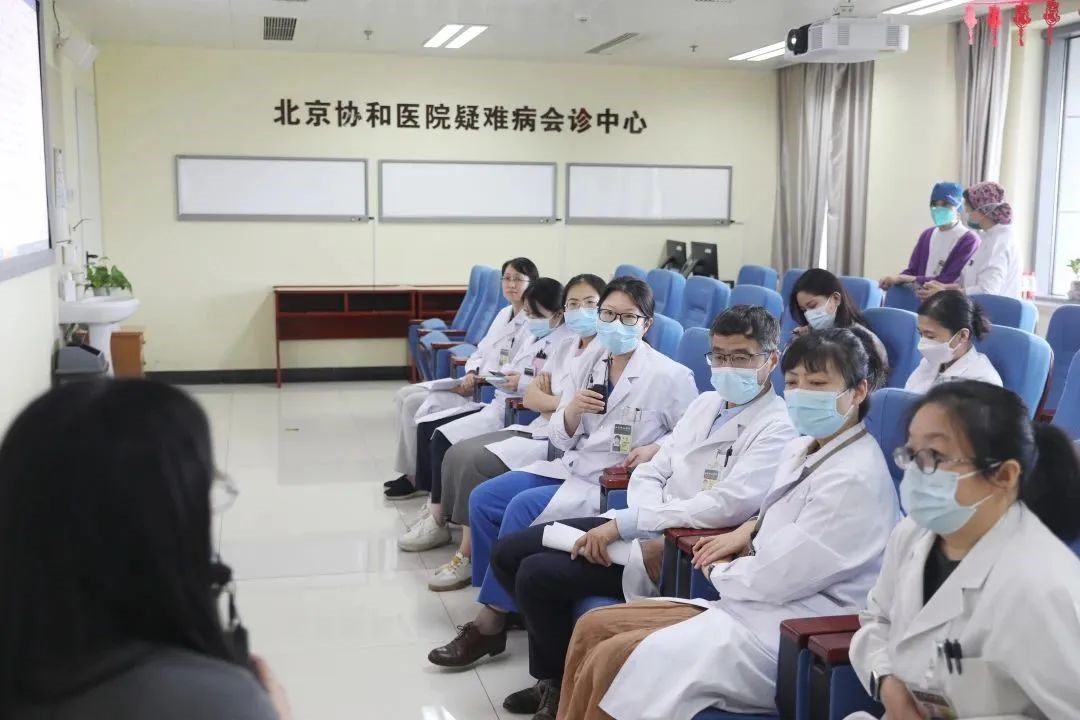At noon on May 31, more than ten physicians from the Multidisciplinary Team (MDT) for Intractable and Severe Obesity at PUMCH were discussing a comprehensive plan to help an obese patient who had suffered from polycystic ovary syndrome (PCOS) for years to reduce weight and try to conceive. Established in mid-April this year, the MDT has so far helped nearly 10 patients with intractable and severe obesity to reduce weight, giving hope to them.

▲Consultation of the MDT for Intractable and Severe Obesity
A referral mechanism has long been working smoothly among multiple departments including the Department of Clinical Nutrition, the Department of Endocrinology and the Department of General Surgery. Thanks to it, accumulatively more than 2,000 patients with intractable and severe obesity have reduced their weight by 20% on average. Most of these patients need multidisciplinary care, long-term or even lifelong management and, more often than not, care for their psychological problems. To make matters worse, many of them give up in the middle of the treatment process due to complicated procedures or difficulties in care seeking, which leads to more serious problems. To build a comprehensive obesity management and decision-making system and improve the overall benefit from weight loss for patients, the MDT for Intractable and Severe Obesity was put in place, composed of nearly 50 physicians from 19 specialties.
Chen Wei, Deputy Director of the Department of Clinical Nutrition, explained the three types of patients for whom doctors will issue an electronic application for consultation by the MDT for Intractable and Severe Obesity: (1) Unduly obese people on whom conventional therapies don’t work. They need bariatric surgery, comprehensive management and corresponding support of the MDT; (2) Patients with secondary obesity caused by intractable and rare diseases such as spinal muscular atrophy (SMA) or Prader-Willi syndrome. They need to maintain a reasonable weight through synthetic management under the guidance of the MDT, especially in phase of life circle such as adolescence; (3) Patients who suffer from severe metabolic disorders induced by obesity such as infertility. They need the help of the MDT to reach the weight loss goals efficiently to avoid more serious health problems, a prerequisite for a successful pregnancy.

▲Physicians in the MDT were communicating with a patient
“We will also make greater efforts in scientific research cooperation and commercialization and product innovation, such as creating an AI-enabled platform for medical weight management, developing medical devices and products such as intragastric balloons and meal replacements for weight loss, and supporting other hospitals to use them in a process-based and module-based manner,” said Chen Wei, who added that the MDT, empowered by new technologies, would help more patients with intractable and severe obesity to achieve weight loss targets in a more scientific, efficient and healthier manner.
Written by Wang Lu
Photographed by Sun Liang
Translated by Liu Haiyan
Edited by Wang Lu, Li Rongrong, and Wang Yao
